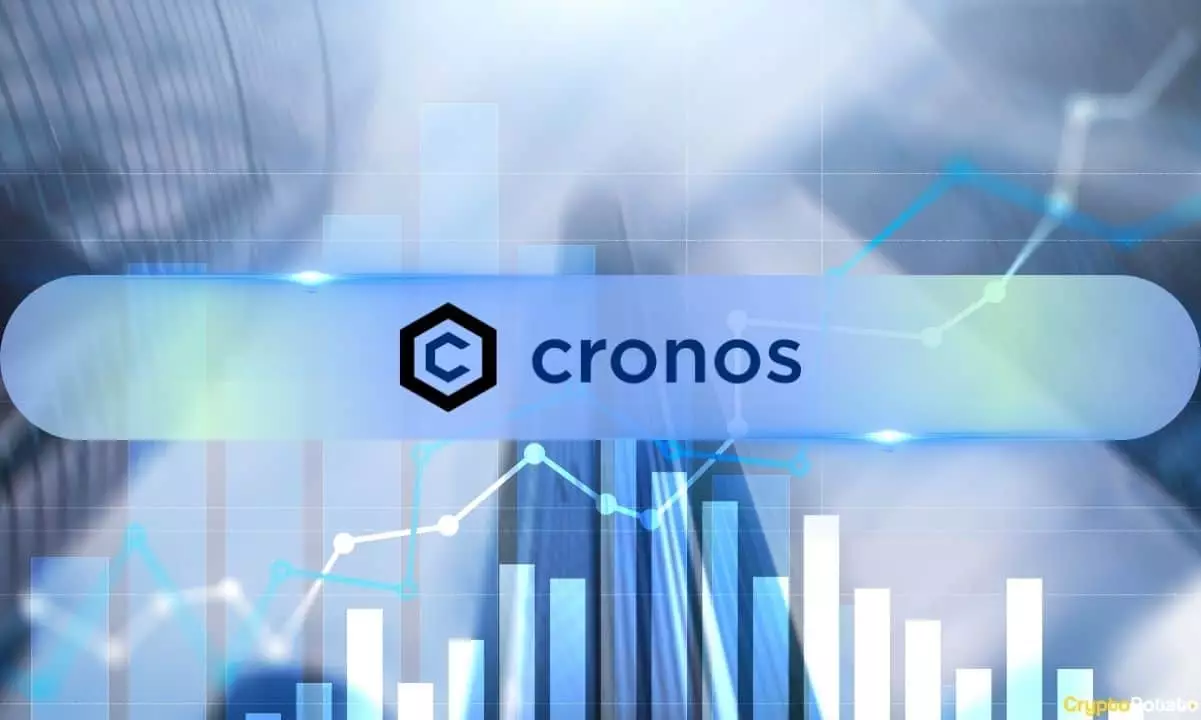Cryptocurrency continues its unpredictable trajectory, and Cronos (CRO) has recently made headlines with a striking upward trend. Witnessing a near 11% surge in just 24 hours to briefly exceed $0.11, CRO is currently holding steady around $0.10. Remarkably, this price jump bolstered its weekly gains to nearly 40%. These figures may spark excitement among investors and enthusiasts, yet underneath this seemingly favorable narrative lies a more convoluted story about regulatory battles, corporate governance, and the very essence of trust in digital currencies.
The rapid price movement following the U.S. Securities and Exchange Commission’s (SEC) announcement that it would not pursue enforcement action against Crypto.com—the parent entity of CRO—reveals just how volatile and reliant on external factors cryptocurrencies can be. The SEC had been investigating Crypto.com for months, sending waves of worry through the crypto industry. The abrupt end to this investigation shouts both a sigh of relief and a note of caution, illustrating how the regulatory environment shapes the viability of digital assets.
The Ghosts of Legal Battles
Diving deeper into the legal quagmire, it’s essential to note that Crypto.com once found itself at odds with the SEC after being served a Wells notice in October 2024. This formal warning indicated that the SEC viewed the platform’s operations as those of an unregistered broker-dealer, violating fundamental regulatory frameworks. The company retaliated with a lawsuit, claiming that the SEC was behaving like a sledgehammer of overreach, misapplying its jurisdiction to envelop an entire industry. Such heavy-handed government oversight only amplifies the fears associated with crypto investments.
The winds shifted significantly when Donald Trump regained the presidency in December 2024. Almost instantly, the legal landscape for cryptocurrencies began to shift, coinciding with the SEC declining to pursue action against Crypto.com. Reactions from within the industry were mixed; on one hand, Crypto.com’s legal arm, led by Chief Legal Officer Nick Lundgren, vehemently criticized the SEC’s past actions. His statements echoed a sentiment prevalent across the crypto community: that regulatory bodies occasionally wield their authority to intimidate industries they fundamentally misunderstand.
Tokenomics Gone Wrong
Despite the apparent triumph over the SEC, the cryptocurrency sector is fraught with its own internal conflicts and controversies. Recently, Crypto.com’s decision to reissue 70 billion CRO tokens ignited a firestorm of critique. Prominent voices within the blockchain community, such as investigator ZachXBT, alleged that the company’s actions paralleled fraud, destabilizing faith in what should be a decentralized ecosystem. The reissuance is perceived as nothing short of betrayal, particularly since it revived tokens that were previously burned, a move intended to strengthen the token’s performance through scarcity.
This brings to light crucial arguments regarding decentralization and governance within the cryptocurrency sphere. Critics argue that the revocation of burned tokens goes against the core ethos of transparency and user empowerment. Activists within the crypto community have repeatedly voiced concern over how centralized control often suppresses genuine democratic principles in favor of corporate profitability. The weight of governance, then, rests heavily on the shoulders of the validators who, it is claimed, retain considerable voting power in a system that was meant to distribute authority more evenly among its participants.
The Personalities Behind Crypto’s Future
As Crypto.com endeavors to chart a path forward, the position of its CEO, Kris Marszalek, remains critical. His staunch defense of the token reissue, framed as a necessary element of the company’s growth strategy, revives questions about leadership ethics in an industry where regulatory oversight is inconsistent at best. What does it say about a company that prioritizes its capital strategy over community consensus? Moreover, the decisions made at the top reflect not just on Crypto.com, but on the broader crypto industry that is still chasing legitimacy in the eyes of mainstream investors and regulators alike.
As the cryptocurrency landscape continues to evolve, everybody must remain vigilant. Each price spike can be a mirage, masking deeper, unresolved issues within the industry’s regulatory foundations and corporate governance structures. In this volatile realm, what can we trust, and who truly has the authority to dictate its future? The tale of Cronos, with its gains and gambles, serves as a vivid illustration of the ongoing battle between innovation and regulation in this digital age.


Leave a Reply